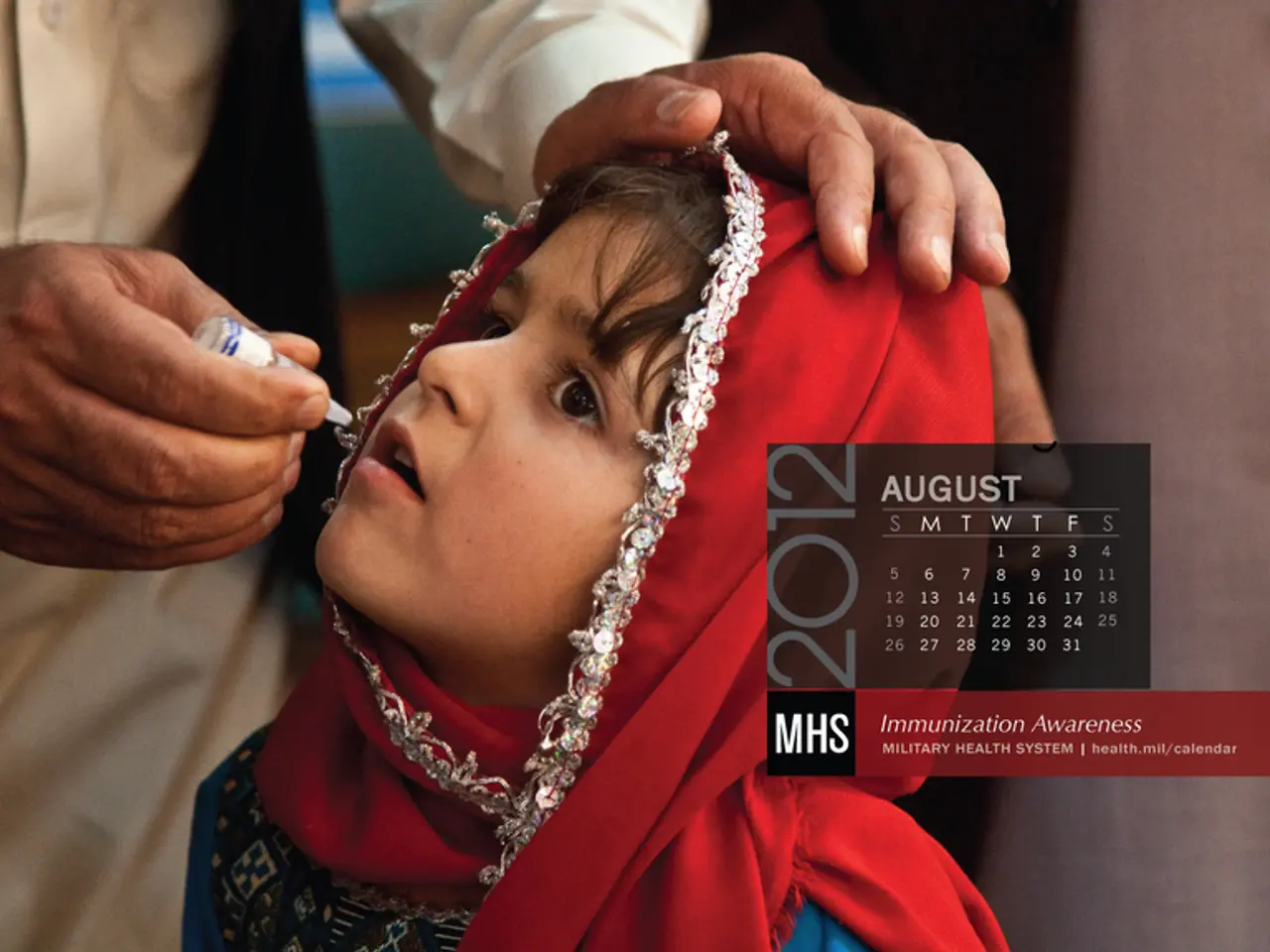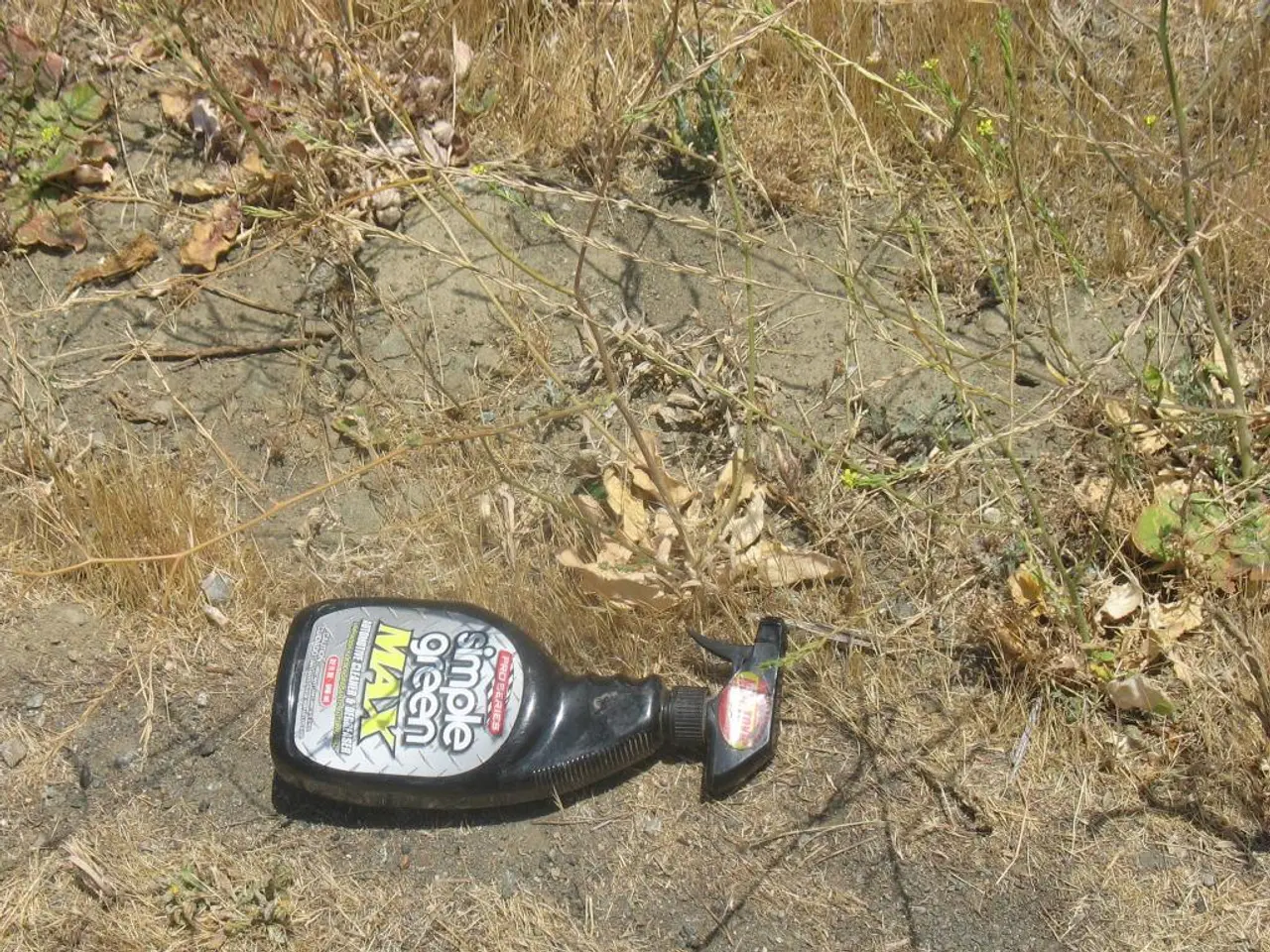Increase in Chest Pain Reports Following COVID-19 Vaccine Rollout in New Zealand
A new report from Medsafe, New Zealand's medicines regulator, has raised concerns about a persistent clinical information deficit regarding the safety of COVID-19 vaccines, particularly the Comirnaty (Pfizer/BioNTech) vaccine. The report highlights deficiencies in vaccine information given to the public, reporting systems for adverse reactions, knowledge about possible adverse reactions, and keeping up to date with the implications of clinical publishing.
The report's findings are significant, as they reveal persistent serious problems beyond the initial 90-day period that have not been adequately addressed. One of the key concerns is the incidence of myocarditis and pericarditis, inflammation of the heart and the sac surrounding it, in individuals under 40 following vaccination with Comirnaty.
According to the U.S. Food and Drug Administration's (FDA) latest safety update, myocarditis and pericarditis still occur in roughly 8 cases per million doses overall in individuals aged 6 months through 64 years, with the highest risk in males aged 12 to 24 at about 27 cases per million doses for the 2023-2024 mRNA vaccine formulation, including Comirnaty.
New Zealand's Ministry of Health, via Medsafe, has formally recognized myocarditis and pericarditis as possible adverse events associated with Pfizer’s vaccine, aligning with international findings. However, the report also emphasizes that these cardiac issues can have lasting effects in some individuals, with observational studies revealing lingering signs of heart inflammation months after vaccination.
These findings have led to strengthened and broadened safety warnings by regulators, including Medsafe, reflecting the evolving understanding of these rare but significant vaccine-associated cardiac effects. The current status of myocarditis and pericarditis cases among individuals under 40 in New Zealand reflects increased awareness and updated safety warnings based primarily on data from broader populations, including the U.S.
Despite these concerns, some individuals feel isolated and socially embarrassed to speak to their GPs about vaccine concerns due to government labeling of the unvaccinated. Furthermore, a delay in acknowledging and addressing mRNA vaccine safety concerns poses a serious danger to public health and stability.
A case in point is a 39-year-old man who reported to Middlemore Hospital A&E with chest pains and waited for 7 hours to see a doctor. During his wait, he witnessed people sleeping on the floor, others leaving with medical tubes, and a bleeding pregnant woman waiting for five hours.
The delay in addressing mRNA vaccine safety concerns is further highlighted by the fact that a follow-up survey conducted by Health New Zealand of individuals diagnosed with mRNA vaccine-induced myopericarditis was delayed for two years before being published this month.
Health Minister Shane Reti's plans to reduce wait times and Science and Technology Minister Judith Collins' plans to deregulate biotechnology experimentation and do away with genetically modified food labelling are criticized as unrealistic in light of these ongoing safety concerns.
Dr. Guy Hatchard, a prominent critic of the government's vaccine policies, predicts that over 30,000 people will report to Accident and Emergency with chest pains this year. The true number of cases may be even higher due to the underdiagnosis or delayed diagnosis of myopericarditis.
The article does not correct the misleading information about vaccine-induced myopericarditis and chest pain incidence that has been previously relayed to the public, raising questions about the transparency and accountability of health authorities in addressing these concerns.
- The persistent clinical information deficit regarding the safety of COVID-19 vaccines, particularly the Comirnaty (Pfizer/BioNTech) vaccine, is a concern, as it has led to an evolving understanding of rare but significant vaccine-associated cardiac effects like myocarditis and pericarditis.
- These cardiac issues, such as inflammation of the heart and the sac surrounding it, can have lasting effects in some individuals, with observational studies revealing lingering signs of heart inflammation months after vaccination.
- In an effort to address these concerns, regulators, including Medsafe, have strengthened and broadened safety warnings, but some individuals still feel isolated and socially embarrassed to speak to their GPs about vaccine concerns.
- The article's lack of correction on the misleading information about vaccine-induced myopericarditis and chest pain incidence has raised questions about the transparency and accountability of health authorities in addressing these concerns.
- As the debate on public health policies continues, some propose measures like reducing wait times and deregulating biotechnology experimentation, but these plans might be unrealistic in light of ongoing safety concerns related to medical-conditions like myopericarditis.




